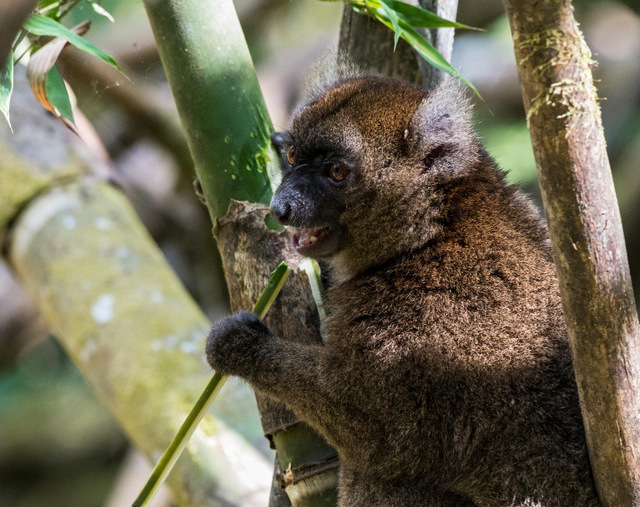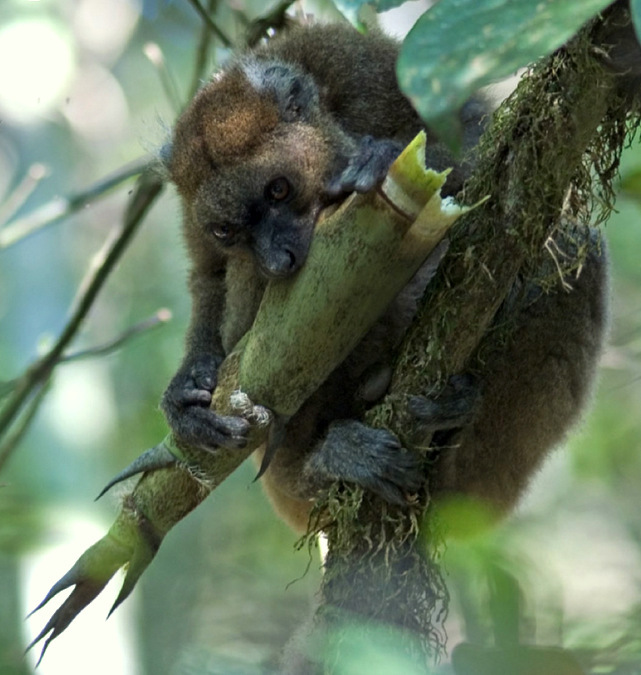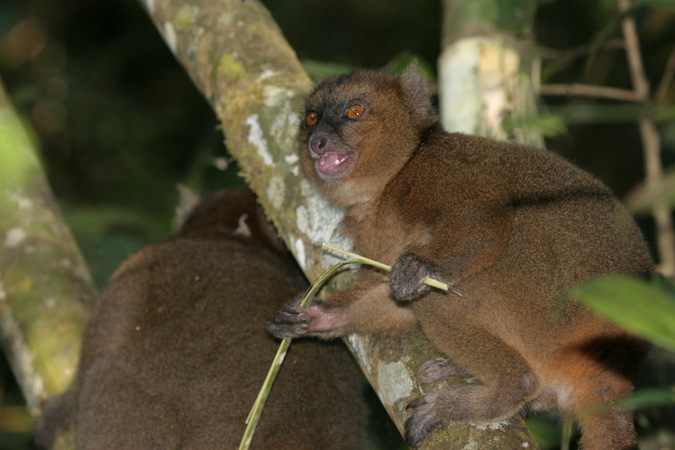
What do China’s giant pandas and Madagascan bamboo lemurs have in common, aside from their precarious conservation status?
Both eat exclusively bamboos.
In fact, the greater bamboo lemur (Prolemur simus) is almost entirely reliant on one species of Madagascan bamboo. And this specialised diet is the cause of this cat-sized mammal’s problems. A report by Current Biology has revealed some interesting but alarming results from an 18-month research project in Madagascar’s Ranomafana National Park.
The lemur benefits most from the nutritious tender green bamboo shoots, but during a few dry months of the year (usually August to November) when shoots are not available, they have to make do with the hard, wooden trunk of the bamboo – known as the culm. They have specialised and complex teeth that enable them to gnaw on culm, however, they cannot go for too long on this specialised diet due to the lack of sufficient nutritional value that would weaken them and eventually kill them.
And yet, as climate change lengthens the dry spells when bamboos are not able to grow shoots, the bamboo lemurs are being forced to go for extended periods on a culm diet, and go without the nutritionally rich green shoots. They are, quite literally, starving to death.

Historical fossil records reveal that the bamboo lemur’s range has always been on parts of the island where the dry season is short. As climate change advances and dry seasons extend, the bamboo lemur’s suitable range is contracting.
“For extreme feeding specialists like the greater bamboo lemur, climate change can be a stealthy killer,” says Patricia Wright at Stony Brook University, one of the authors. “Making the lemurs rely on a suboptimal part of their food for just a bit longer may be enough to tip the balance from existence to extinction.”
The team of scientists are hopeful that their studies can add to an understanding of how climate change effects specialist feeders, and that conservation work will include the building of bamboo corridors for Madagascar’s greater bamboo lemurs, in order to connect isolated populations and increase access to suitable habitat.
The full report: Current Biology, Eronen and Zohdy et al.: “Feeding Ecology and Morphology Make a Bamboo Specialist Vulnerable to Climate Change”

To comment on this story: Login (or sign up) to our app here - it's a troll-free safe place 🙂.![]()






